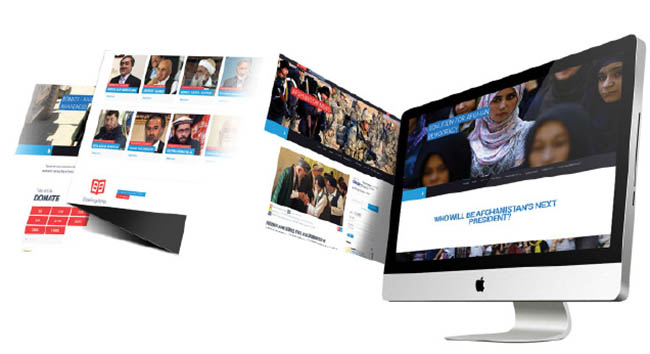Access to news and information is the individuals’ fundamental right in a society. Citizens are entitled to have access to national and international news. Curtailing this right will be tantamount to depriving citizens of information and awareness. The most significant responsibility of the media and press is spreading awareness to citizens from political, social, cultural and economic aspects. The freedom of the press is a basic element of democracy in modern world. Hence, no power, including the government, will be allowed to keep people in dark or distort the fact under the pretext of public interest or maintaining security and discipline. Freedom of the media and press means the freedom of expression regarding social facts, events and news as law has predicted, without being censored or submitted to officials in advance. The Afghan Constitution states in article 24, “Freedom of expression shall be inviolable. Every Afghan shall have the right to express thoughts through speech, writing, illustrations as well as other means in accordance with provisions of this constitution. Every Afghan shall have the right, according to provisions of law, to print and publish on subjects without prior submission to state authorities….”
Based on this article, the media and press are free in their statements in provision of the law. However, it is worth saying that such freedoms should not be misused and no one is allowed to highlight the negative aspect of issues or create public disorder under the aegis of this freedom. The responsibility of the media and press is enlightening the minds of the public and promoting the level of their awareness and knowledge. Moreover, the media will have to play their role in strengthening national unity and constituting empathy, denying the false barriers and struggling for the promotion of human rights and dignity.
Ill-fatedly, some national media seek to highlight the sore points such as racial, religious and sectarian issues rather than paving the ground for unity and brotherhood or underlining the spirit of tolerance among the people. It is self-explanatory that involving in such issues will benefit no one and will be destructive and misleading. Therefore, the political pundits, the elite and think-tanks will have to struggle for national solidarity – with consideration to the country’s facts and situation – and uphold the constitutional values. A number of invaluable issues have been mentioned in the Constitution’s preamble such as: realizing the previous injustices, miseries and innumerable disasters; appreciating the sacrifices, historical struggles, jihad and just resistance of all the peoples of Afghanistan; admiring the supreme position of the martyrs of the country’s freedom; strengthening national unity; safeguarding independence, national sovereignty and territorial integrity of the country; establishing an order based on the peoples’ will and democracy; forming a civil society void of oppression, atrocity, discrimination as well as violence, based on rule of law, social justice; protecting integrity and human rights; attaining peoples’ freedoms and fundamental rights; and strengthening political, social, and economic as well as defense institutions.
The limitation of freedom of press has been determined in the laws of the countries and the responsibilities of all freedom-owners will be written and approved in a way that violators will be prosecuted. In Afghanistan, too, the frame of the media’s activities have been determined in the law of public media – this ensures the freedom of the media and press and saves them from violence. This law underlines the responsibilities and limitation of the media and points out the criteria. The main objectives of this law is considered to be: promoting and protecting the right to freedom of thought and expression; upholding the journalists’ rights and smoothing the path for their activities; developing free, independent and pluralistic mass media; providing a safe ground for expressing thoughts and feelings through statement, writing, drawing, recording, filming, illustrating and other educational, literal, artistic instruments. The further objective is observing the principle of freedom of expression and press, written in the International Covenant on Human Rights, with taking Islam religion into consideration, for a sound progress of the media.
This law states in article 4 that everyone has the right to thought and expression. Demanding, obtaining and transferring information and ideas without the interference and restriction from the government officials are also parts of freedom of expressions. The government will support the freedom of mass media. It adds that no legal entities or individuals can ban, censor or curtail the media or interfere in their issues in any other ways. So, since the rights and responsibilities of the mass media have been clearly stated in the law, media must comply with them and violation of this law will lead to legal prosecution. It is really important that the media and press should not misuse this freedom and respect the human rights, dignity, religious and sectarian beliefs, the sacred, and social values so as not to outrage the public conscience or dishonor any individuals, tribes, sects or social groups.
Home » Opinion » Media – The Fourth Pillar of Democracy
Media – The Fourth Pillar of Democracy
| Abdul Hamid Arifi

